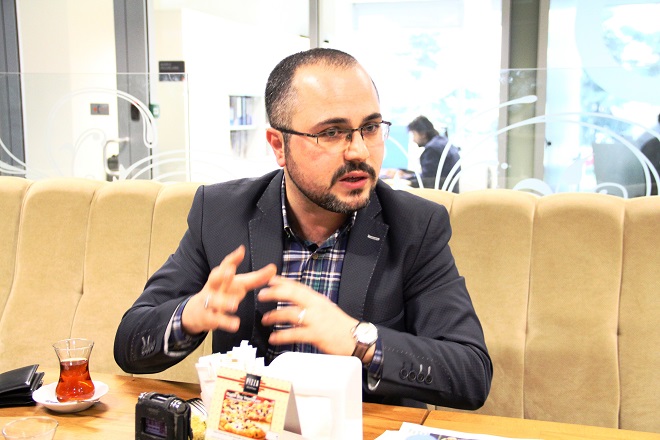TURKEY
Mustafa Edib Yılmaz, chief world news desk at “Zaman” daily: “Every day freedom of the press gets a blow from the government”

Turkey’s battle against terror is fought also on the web. However, freedom of expression – and not the Jihadi activists – is paying the price. On the aftermath of the Suruc terror attack, where a suicide bomber took the lives of 32 youths, the Turkish government blocked all access to Twitter. The stop lasted a few yours, enough to remove hate-incitement and to prevent users to share images of the tragic attack, in respect of the victims, the Turkish government declared. Immediately after the Suruc massacre, the realm of social networks reacted with a global flow of posts and tweets. The selfies of a group of young Curds in particular, had the strongest impact. The smiling faces of young boys and girls conquered social networks worldwide. But its resonance evidently alarmed Erdogan’s government. It’s a hot, incandescent situation, as proved by the fact that NATO called a meeting in Brussels on Turkey’s request, to discuss military intervention against ISIS and PKK Kurdish separatists. Air raids against the Islamic State in Syria and against Kurdish PKK in Iraq began last week, and they continue amidst arrests of people suspected of terrorism and victims on the field. Mustafa Edib Yılmaz is the editorialist and responsible of the foreign desk of “Zaman”, the most widely-read daily in Turkey, victim of a vast police operation last year that led to the arrest of various political figures and journalists, including the director of the newspaper. Chiara Biagioni interviewed him for SIR Europe. Why has the Court of Suruc, in South-East Turkey, banned the publication on Twitter of photos and videos of the attack? “It was presented as a precautionary measure to prevent the propaganda of terror. It lasted a short period and once the content was removed from the web, the various micro-blogging sites were reopened”. Why are Turkish authorities so afraid of social networks? “Because authorities are able to control almost all traditional media, both newspapers and TV. What they can’t control are the social media. The only way to do so, is to shut down the newsreels. It appears they have a lot to hide to the general public…” Is it a sign of the difficulties in the fight on the terrorist threat? “Yes, it could be interpreted in this way. We still don’t know to what extent ISIS terrorism has penetrated the Turkish territory. We don’t know on how many militants ISIS can count on as regards national territories, namely, how many people are ready to strike once they receive an order. Given such an unsafe and uncontrollable environment, the government was motivated by the need to adopt measures that might appear exaggerated”. The photos of the young victims of the Suruc attack were disseminated worldwide thanks to social networks like Twitter and Facebook. Do you consider it possible to close social networks in order to ensure security in the Country? “Obviously no. The fight on terrorism cannot take place through censorship. The government should step up its commitment in actions aimed at combating violence”. Are Turkish journalists worried about the freedom of the press in the Country? “We are very worried. Every day the freedom of the press suffers a direct or indirect blow from this government”. How can the international community and European journalists help Turkey undertake the path towards true democracy? “Professional solidarity could work. It’s always a good idea to be aware of what’s going on in Turkey and exert pressure on our governments to ensure the respect of the principles that the authorities of the Turkish government claim to support. Internal political criticism, when made public, is counterproductive. That’s why it’s preferable not to act in the open, and exert pressure on European governments, the EU, and the international community”.